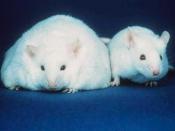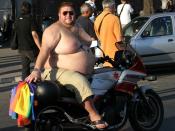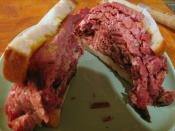In ÃÂFat and Happy?ÃÂ, Hillel Schwartz is examining the arguments over obesity and the effectiveness of its treatments. Schwartz mortifyingly claims in his article, that a fat society would be a preferable culture to live in. He uses biased arguments and unsupported information to back his views against the overweight society. He does state some information that is defended by evidence but much of his statements require further confirmation. Schwartz sways his readersÃÂ opinions over the causes of obesity and the efficiency of its cures using logical fallacies and personal attitudes.
Schwartz claims that members of the society who are in good physical shape are the cause of unhappiness among obese people. He says that by labeling obese people as clowns, cannibals, and clodhoppers, they are causing more shame and humiliation than an obese individual would experience from being overweight alone. People that make comments such as, ÃÂTo be fat is the end of lifeÃÂ (Schwartz 380), only make them more miserable.
These are all accurate points that Schwartz makes but most would consider this apparent logic.
One of the logical fallacies Schwartz uses is hasty generalization. Schwartz claims that overweight people are not able to excel in school and/or in their careers. The writer has no evidence that overweight people are unable to perform well in these areas but blindly accuses them as being unsuccessful. Schwartz also uses false analogy in his case when he affirms that minorities and obese people are similar. He argues those both minorities and obese people have difficulty being promoted in the workplace and being accepted to colleges. This is not a logical argument because minorities have been known to hold high positions in many occupations and there are countless scholarships sponsoring minority students to attend colleges nationwide.
Another one of the authorÃÂs arguments states that obese patientsÃÂ have no other option other than burning their own body fat and in turn, being cannibalistic (Schwartz 386). This statement is not logical because there is no solid proof that this is the only way to lose weight. Dieting does not mean your body is ÃÂeating itself upÃÂ as the author portrays it; dieting is actually regulating the amount and types of food you ingest in order to gain or lose weight. There are also surgical procedures and therapeutic treatments that could facilitate a patient trying lose weight. Therefore, dieting or ÃÂcannibalismÃÂ is not the only option for an obese person, which makes SchwartzÃÂsÃÂ argument illogical.
SchwartzÃÂs answer to a suffering humiliated obese population is to make everyone overweight. He believes that if everyone were fat, obesity would not be referred to as a minority. The labeling and name-calling would come to a halt and less discrimination would occur. The society would prefer the good as opposed to the bad. In his argument, Schwartz uses Non Sequitur to provide reason behind his idea. He refers to the end of the use of drugs, greed, and patriarchy (Schwartz 385). Schwartz believes that all of these problems would be solved if we lived in a purely obese society but his claim lacks logic because there is no guarantee that people would not use drugs and women would become the dominate sex.
Hillel Schwartz is clearly critical of dieting and the obese population; he has many logical as well as illogical arguments. Much of the evidence Schwartz provides has little efficiency in proving his point because opposing defense can be found. He uses many of his personal opinions to help sway the readers view. His idea of an all-fat society does not seem logical due to projected consequences such as health risks and inefficiency. The writer overlooks many of these costs when trying to support his idea of making a common obese society. Criticizing the current treatments for obesity and weight loss is not going to justify SchwartzÃÂs views and opinions.
Works CitedSchwartz, Hillel. "Fat and Happy?" Writing and Reading Across the Curriculum. ByLeonard J. Rosen and Laurence Behrens. New York: Longman, 2006. 380-86.





